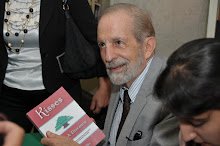As I mentioned previously, changes in the publishing industry have mandated that authors become intimately involved in the promotion and sale (marketing) of their work. And, this development has not been greeted with enthusiasm by individuals in the writing community.
By way of background, I need to mention that I was involved in selling at a very early age. I worked in my father’s tobacco shop from my pre-teen years all the way through high school. Dad was an unschooled graduate of Hard Knocks U, and he dispensed his accumulated wisdom, reflexively and without thought. “Don’t discuss religion or politics with customers,” he ordered. “And when a customer gives you money, you say thank you.” These are but a couple of the dictums that obviously had an impact on me, for I remember them clearly even decades later. And, I might add, not always following them usually redounded to my disfavor.
Although I earned a science degree in college, it didn’t take long after embarking on my business career to notice that, no matter what pursuit you were involved in, selling quickly became an important part of your job. You had to sell your co-workers that you were a competent partner in the projects you were assigned; you had to sell your boss that you were doing a good job; you had to sell the customers that they had placed their faith, and money, in the right firm to do their work. I didn’t think of these activities as part of marketing until much later when I began reflecting and writing on my experiences.
It soon became obvious to those in positions above me that I had acquired a flair for marketing and was given more and more of those kinds of tasks, which included making presentations, writing technical papers, proposals, and articles for journals and newspapers. I like to call this part of my life as my “writing and marketing apprenticeship.” As a concrete example of my activities, I once sold a $5 million service contract to a consortium of banks, and a $20 million venture capital project to a large conglomerate, among others. I like to joke to my friends that, whereas I used to run around the country selling multi-million dollar projects, I am now reduced to running around the country selling a $20 book!
I was thrust into the sphere of bookselling by the simple accident of getting a book published. Like most writers, I thought I had done all the heavy lifting by the time I finished the research and writing. When I realized that the publisher wasn’t going to do anything to promote the work, I plunged headlong into the tide, just as did Horatius at the Bridge. I didn’t really know anything about it but thought, “How hard can this be? It’s duck soup, comparatively speaking, especially for someone with my background.” Let’s just say I had a bit to learn.
The first thing I did, as any scientist worth his salt would, was to research the problem. There are several good self-help books available on this subject, so I bought a couple and studied them. They were quite helpful, especially in acquainting me with the venues that other authors had used for promotion. But, and this is something that all writers soon realize, effective marketing can be expensive. There are precious few lucrative “cheap ideas” for book promotion. (Some will argue this point, but I say show me the figures.) Of course everyone touts the Internet—you must have a web site, a blog, a Facebook page, and now you must also Tweet. But how many books do these activities sell? No one is saying, but as any marketeer will tell you, getting your name out there is always good, even if no tangible results are immediately seen. After all, commercial direct mail is considered effective if you get a two percent return. But, can authors live on two percent?
The prospect of spending money to market my book didn’t daunt me, because, unlike many other writers, my livelihood didn’t depend on it. So, I asked myself, “Why are you doing this?” My first answer was simply this: “I’m doing it because, as one who came to this avocation later in life, I feel my accumulated ‘Elder Statesman’ experience might be useful to others.” Second, I thought I had some entertaining stories to tell. And third, I believe underneath it all, everyone is searching for “immortality” in one way or another, and successful books have a good chance of enduring after one is long gone.
Once the book was published, I attacked the problem of promotion with gusto, devising strategies and plans of attack that I was sure would guarantee great results. When several of my first readers asked when the sequel was coming out, I said, "Let's sell this one out first."
In my next post, I will relate some of my marketing experiences, their costs and their results.
Subscribe to:
Post Comments (Atom)




1 comment:
Good stuff!
Post a Comment